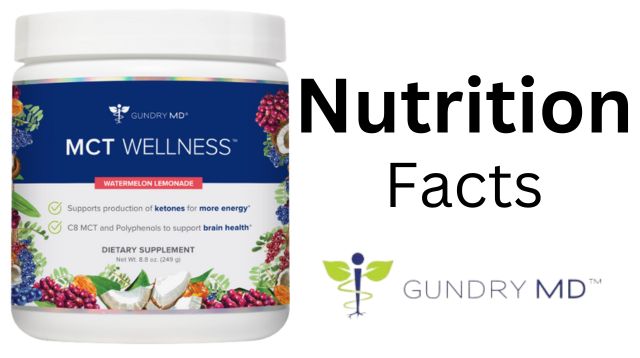How to Use MCT Oil to Support Weight Loss

What Is MCT Oil?
MCT oil is a dietary supplement commonly derived from coconut oil. It contains medium-chain triglycerides (MCTs). MCTs are easier to metabolize compared to long-chain triglycerides (LCTs), potentially providing a quick source of energy.1
The key MCT fatty acids found in coconut oil are known as caprylic (C8), capric (C10), caproic (C6), and lauric acid (C12).2
Most MCT oils contain a combination of C8 and C10, or just one of these fatty acids, as these are seen as the most potent and effective fatty acids. The remaining two (C6 and C12) are usually removed to enhance the quality of the MCT oil.3

The Connection Between MCT Oil And Weight Loss
In recent years, MCT oil and its potential effect on weight loss have generated a lot of excitement. But, is there any scientific evidence for this claim?
Let’s break down what we know so far.
1. MCT oil is more efficiently absorbed by the body compared to other fats.
Most of the magic of MCTs lies in the fact that they’re easier to digest, absorb, and metabolize than LCTs (like those we get from fish or olive oil.)
This is because MCTs have a shorter molecular structure than long-chain fatty acids, allowing them to zip through the body faster and bypass the bile breakdown stage. So, your body absorbs MCTs and then whisks them off to the cells for immediate use.4,5
2. MCT oil may help increase energy expenditure.
MCT oil could be an effective tool in weight management due to its fat-burning capabilities and its potential to help boost energy expenditure.
Clinical studies suggest that consuming MCTs may lead to greater energy expenditure than the consumption of LCTs, which may be helpful in terms of weight management.6
Consider this: A study found individuals consuming MCT oil experienced greater weight loss than those using olive oil. After 16 weeks, those in the MCT group lost more weight on average than the LCT group and saw greater reductions in body fat.7
Finally, because MCTs travel so quickly into the bloodstream, they may be less frequently stored as fat compared with other oils.8
3. MCT oil may help increase post-meal fat burning.
When MCT oil is consumed, it has shown promise as having a high burn rate in the body. This may help boost the number of calories burned after meals. This process is known as post-meal thermogenesis.9
One study showed that though the post-absorptive resting metabolic rate (RMR) was higher in obese individuals studied – good news for those trying to lose weight – MCTs still showed an ability to enhance post-meal thermogenesis in both lean and obese individuals.10
4. MCT oil may help promote ketone production.
Medium-chain triglycerides (MCTs) are potent sources of fuel for your body, known to help enhance ketone production. Ketone production can be a key component of successful weight management.11
Ketones are an alternative fuel for the body, made in the liver from the breakdown of fats. Ketones burn fats. They’re usually formed when there’s not enough sugar or glucose for the body’s fuel needs.12
However, MCTs have specific metabolic properties which have led researchers to describe them as “ketogenic” even without carbohydrate restriction (which is what ketogenic diets are based on). This effect has predominantly been demonstrated by the MCT caprylic acid (C8).13
Increased ketone production may also make some people feel less hungry.14
5. MCTs may help support healthy blood sugar levels.
Another potential benefit of MCT oil is that it may make it easier to maintain safe, healthy blood sugar levels. You see, excess sugars are stored as fat when they have nowhere else to go. So, maintaining healthy blood sugar levels has the potential to assist with weight management. 15,16

How To Use MCT Oil To Help Support Weight Loss
Step 1: Use MCT oil as a supplement.
- Try MCT oil in your morning coffee or tea. It adds a nice flavor, and it may help to kick-start your day.
- Add flavored MCT powder to a glass of water, and drink it as a refreshing “wake-up” beverage.
- Begin with a smaller amount so your body can adjust, and then gradually increase your intake over several days.
- Remember, high-quality MCT is paramount for optimal benefits.
Step 2: Upgrade your coffee beverages.
- Begin by brewing your favorite coffee.
- After brewing, pour the coffee into a blender.
- Add a tablespoon of MCT oil or a scoop of MCT powder to the blender.
- Blend until it attains a creamy consistency.
- Voila! Enjoy your hearty, health-supporting brew!
Step 3: Blend it into protein shakes or smoothies.
- Start with half a cup of hemp, coconut, goat, or A2 milk.
- Add a tablespoon of MCT oil or a scoop of MCT powder.
- Toss in half an avocado and ½ cup of raspberries or blackberries (in season) for added nutrients and flavor.
- Blend until combined.
MCT Oil Vs. Coconut Oil: What's The Difference?
1. MCT Oil vs Coconut Oil: MCT Content
Although MCT oil is derived largely from the same sources as coconut oil, it's much more concentrated. In fact, MCT oil contains 100% medium-chain triglycerides (MCTs), compared to about 50% in coconut oil.17
What does this difference mean for your weight management journey?
Because coconut oil is less concentrated, it is less potent than MCT Oil. So, any potential benefits from MCT oil likely won’t directly transfer to coconut oil.
Coconut oil also contains more lauric acid than any other fatty acid. Although lauric acid is considered an MCT, it acts more like a long-chain triglyceride (LCT) in terms of digestion and metabolism and is generally considered to be an unhealthy saturated fat.18,19
2. MCT Oil vs Coconut Oil: Absorption
We’ve talked a little about this one already, but coconut oil and MCT oil simply aren't absorbed in the same way by your body.
We just saw how the lauric acid in coconut oil tends to act more like an LCT in terms of its speed, which means its absorption is just plain less efficient.
On the other hand, we’ve also seen how MCT oil contains 100% MCTs – and those types of MCTS (C8 and C10) get absorbed fast – from your gut right into your liver.

MCT Oil: More Ideas
1. MCT Oil For Breakfast
- Start your day with an MCT-laden smoothie or coffee, or a refreshing glass of flavored MCT powder.
- Drizzle MCT oil over a bowl of fresh seasonal fruit.
- Add MCT powder to a lectin-free pancake recipe.
2. MCT Oil For Lunch
- Drizzle MCT oil over a piece of baked salmon, salad, or vegetables.
- Add MCT oil to balsamic vinegar as an instant dressing.
3. MCT Oil For Dinner
Here's a simple dinner recipe for 'MCT Oil-Infused Jicama Ruffle chips.' What makes it a great recipe is that you only bake at 200°F – low and slow. As MCT oil has a low smoke point, it shouldn’t be cooked over 300°F.20
- Preheat the oven to 200°F.
- Using a mandoline, carefully slice your jicama nice and thin (about 2mm).
- Spread over a parchment-lined baking sheet in a single layer. Do not let the chips touch.
- Brush your jicama chips with MCT oil, and then sprinkle with spices — salt, pepper, powdered garlic, and onion.
- Bake for 90 minutes (or to desired golden crispiness). Be sure to flip your jicama chips every 20 minutes or so.
Final Thoughts
Incorporating MCT oil into a weight management regimen can be a promising strategy. Its unique properties and potential metabolic benefits make it a valuable addition to a balanced diet and exercise plan.
However, it’s important to remember that weight loss is a multifaceted process, and no single ingredient or supplement can guarantee success. MCT oil should be used in conjunction with other healthy lifestyle choices for optimal results.
Always consult with a healthcare professional before beginning any new supplement.
Sources
- https://www.health.harvard.edu/blog/is-there-a-place-for-coconut-oil-in-a-healthy-diet-2019011415764
- https://www.healthline.com/nutrition/mct-oil-101#mct-oil
- https://www.healthline.com/nutrition/mct-oil-101#mct-oil
- https://pubmed.ncbi.nlm.nih.gov/11755040/#:~:text=Firstly%2C%20fatty%2Dacid%20chain%20length,than%20long%2Dchain%20fatty%20acids
- https://www.healthline.com/nutrition/mct-oil-benefits
- https://pubmed.ncbi.nlm.nih.gov/18326600/
- https://pubmed.ncbi.nlm.nih.gov/18326600/
- https://www.healthline.com/nutrition/mct-oil-101#:~:text=Since%20the%20MCT%20is%20digested,eventually%20be%20stored%20as%20fat.
- https://pubmed.ncbi.nlm.nih.gov/2021124/
- https://pubmed.ncbi.nlm.nih.gov/2021124/
- https://www.ncbi.nlm.nih.gov/pmc/articles/PMC7175812/
- https://dtc.ucsf.edu/types-of-diabetes/type2/understanding-type-2-diabetes/how-the-body-processes-sugar/ketones/#:~:text=Ketones%20and%20ketoacids%20are%20alternative,and%20during%20dieting%20or%20fasting.
- https://www.ncbi.nlm.nih.gov/pmc/articles/PMC7175812/
- https://www.ncbi.nlm.nih.gov/pmc/articles/PMC5813183/#:~:text=Conclusions,hunger%2C%20and%20desire%20to%20eat.
- https://pubmed.ncbi.nlm.nih.gov/1568535/
- https://www.cdc.gov/diabetes/basics/insulin-resistance.html
- https://www.ncbi.nlm.nih.gov/pmc/articles/PMC4882694/
- https://www.ncbi.nlm.nih.gov/pmc/articles/PMC4892314/
- https://www.acs.org/molecule-of-the-week/archive/l/lauric-acid-myristic-acid.html
- https://med.virginia.edu/ginutrition/wp-content/uploads/sites/199/2014/06/Parrish-February-17.pdf
Related posts


